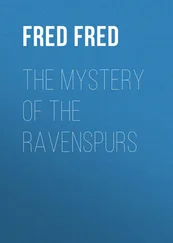Ford Ford - The Young Lovell
Здесь есть возможность читать онлайн «Ford Ford - The Young Lovell» — ознакомительный отрывок электронной книги совершенно бесплатно, а после прочтения отрывка купить полную версию. В некоторых случаях можно слушать аудио, скачать через торрент в формате fb2 и присутствует краткое содержание. Жанр: foreign_antique, foreign_prose, Историческая проза, на английском языке. Описание произведения, (предисловие) а так же отзывы посетителей доступны на портале библиотеки ЛибКат.
- Название:The Young Lovell
- Автор:
- Жанр:
- Год:неизвестен
- ISBN:нет данных
- Рейтинг книги:3 / 5. Голосов: 1
-
Избранное:Добавить в избранное
- Отзывы:
-
Ваша оценка:
- 60
- 1
- 2
- 3
- 4
- 5
The Young Lovell: краткое содержание, описание и аннотация
Предлагаем к чтению аннотацию, описание, краткое содержание или предисловие (зависит от того, что написал сам автор книги «The Young Lovell»). Если вы не нашли необходимую информацию о книге — напишите в комментариях, мы постараемся отыскать её.
The Young Lovell — читать онлайн ознакомительный отрывок
Ниже представлен текст книги, разбитый по страницам. Система сохранения места последней прочитанной страницы, позволяет с удобством читать онлайн бесплатно книгу «The Young Lovell», без необходимости каждый раз заново искать на чём Вы остановились. Поставьте закладку, и сможете в любой момент перейти на страницу, на которой закончили чтение.
Интервал:
Закладка:
Therefore, when they came to Calais, they went quietly home to England without turning back to war in France. That was according to their oath to Messire Parrolles at Rome, though some of King Edward's lords and courtiers mocked at them and it was said to be in the King's mind to have fined them, not for having observed, but for having taken such an oath. However, when they came into the North parts, at Northallerton, they met with the Duke of Gloucester, the King's brother, who treated them very courteously and absolved them of ill intentions because at the time they had taken the oath peace had been between England and France, or at least no news of the war had reached Rome. This Richard, Duke of Gloucester, brother of King Edward, was much loved in the North, of which region he was then Lord-General. He dealt with all men courteously, giving simple and smiling answers to simple questions and never failing to answer favourably any petition that he could grant, or refusing others with such phrases of regret as made the refusal almost a boon of itself. He inflicted also no harsh taxes and took off many others, so that in those parts he was known as the good Duke of Gloucester.
He treated the Lord Lovell and his son with such smiling courtesy that they very willingly went with him, before ever their home saw them, on a journey that he was making towards Dunbar, and it was in the battle that some Scots lords made against them on the field of Kenchie's Burn that the Young Lovel did such great things. He took prisoner with his own hands a great Scots lord, own cousin to Douglas, in a hot mêlée, where, before he was taken, the Scots lord, being otherwise disarmed by the Young Lovell, knocked with his clenched fist, nine teeth down the throat of Richard Raket, that was the Young Lovell's horse boy. And this lord having cried mercy, the Young Lovell pursued so furiously against the Scots that he slew many of them before nightfall and was lost in a great valley between moors and slept on the heather. There he heard many strange sounds, such as a great cry of dogs hunting overhead, which was said by those who had read in books to be the goddess Diana chasing still through the night the miserable shade of the foolish Actæon. And between two passages of sleep, he perceived a fair kind lady looking down upon him, but before he was fully awake she was no longer there, and this was thought to be the White Lady of Spindleston, though it was far from her country. But still that spirit might have loved that lording and have sought his company in the night for he was very fair of his body. And it was held to be a sign that he was a good Christian, that this lady vanished upon his awakening, for in that way spirits have been known to follow Good Knights from place to place for love of them, and in the end to work them very great disaster.
So at least that was interpreted by the young monk Francis of the order of St. Cuthbert who was with the army when, in the morning, Young Lovell came to it again after he had been held for dead. But the monk Francis had read in no books, having been an ignorant rustic knight of that country-side, that had become a monk for a certain sin. The Young Lovell found, indeed, that, whilst he had been so held for dead this young monk had much befriended him. For his father, the Lord Lovell, had shewn a disposition to adopt that Decies of the South and to give him the fruits of the young Lovell's deeds, such as the ransoming of the Scots lord and the knighthood that the Duke should have given him had he been found on the field at the closing of the day. The young monk had however protested so strongly that the Young Lovell was not dead, but had in his face the presage of great and strange deeds, whether of arms or other things – so hotly had the young monk made a clamour, that the old lord was shamed and had for the time desisted.
That Decies of the South was a son much more after the old lord's heart than ever the Young Lovell, for all his prowess, could be. He loved the one son whilst he dreaded the other, since he was too like his mother that was a Dacre and despised the Lovells or the Ruthvens.
This Decies the Lord Lovell had picked up at Nottingham on their homeward road, and, finding him a true Lovell, had made no bones about acknowledging him for a son though he never would say who his mother was or how he should come by the name of Decies. But he was rising twenty-one, like the Young Lovell, heavy, clumsy, very strong and an immense feeder. He was dark and red-cheeked and cunning and he fitted his father as a hand fits a glove. Nevertheless he had done little at Kenchie's Burn, he had slept so heavily. It had been no man's affair to waken him, he having drunk very deeply of sweet wines the night before. That battle began at dawn and travelled over many miles of land, so that when Decies of the South came up the Scots were already fleeing.
The old lord did no more than laugh, but he felt it bitter in his heart. And, as it had been on that day, so it continued, the one half-brother being always up in the morning too early for the other. They made very good companions hunting together, though it was always the Young Lovell that had his dagger first in the throat of the grey wolf or the red deer, and the Decies who came second when outlaws, or else when the false Scots, must be driven off from peel towers that had the byres alight beneath them and the farmers at death's door above, for the smoke and reek. Nor was it because the Decies lacked courage, but because he was slow in the uptake and, although cunning, not cunning enough.
Or it may have been that he was too cunning and just left the honours to the Young Lovell who was haughty and avid of the first place. For the Lady Rohtraut took very unkindly to the Decies and made him suffer what insults she could; only the lower sort of the castle-folk willingly had his company, and the old lord was growing so monstrous heavy that it was considered that his skin could not much longer contain him. He had led a life of violence, sloth, great appetites and negligent shamelessness, so that the Decies considered that he would soon have need of protectors in their place. The old lord might leave his lands, but much of his lands were the dower of his wife and upon his death would go back to her hands alone. For the lands of the Castle and the gear and gold and silver that were in the White Tower under the night and day guard of John Bulloc, the old lord might leave the Decies what he would, but the Young Lovell could take it all.
The Decies would find neither lord nor lord bishop nor lawyer to espouse his cause. Moreover, though his father might give him gold and gear whilst he lived, the Decies had no means whereby to convey it to a distance and no place in the distance in which to store it, besides it would surely be taken by moss-troopers and little cry made about it. For in those days all the North parts were full of good, small gentry robbing whom they would, like the Selbys of Liddell, the Eures of Witton or Adam Swinburn.
For the times were very unsettled, and no man could well tell, in robbing another, whether he were a knight of King Richard's despoiling the King's enemies or a traitor to King Henry robbing that King's lieges, and there was little for the livelihood of proper gentry but harrying whether in the King's cause or in rebellion. So that if the Decies' money on its way to safe quarters should be taken, there would be little or no outcry since he was nothing to those parts. So he was a very good brother to the Young Lovell and followed him like his shadow.
So there they all sat at the chequered table and the Lord Lovell watched them with his cunning eyes and speculated upon the dissensions that lay beneath all their fair shew of courtesy. And he wondered how, from one or the other, he might gain advantage for his son Decies. It was not that he hated the Young Lovell, but he wished Decies to have all that he might and something might come of these people's misliking of each other.
Читать дальшеИнтервал:
Закладка:
Похожие книги на «The Young Lovell»
Представляем Вашему вниманию похожие книги на «The Young Lovell» списком для выбора. Мы отобрали схожую по названию и смыслу литературу в надежде предоставить читателям больше вариантов отыскать новые, интересные, ещё непрочитанные произведения.
Обсуждение, отзывы о книге «The Young Lovell» и просто собственные мнения читателей. Оставьте ваши комментарии, напишите, что Вы думаете о произведении, его смысле или главных героях. Укажите что конкретно понравилось, а что нет, и почему Вы так считаете.












